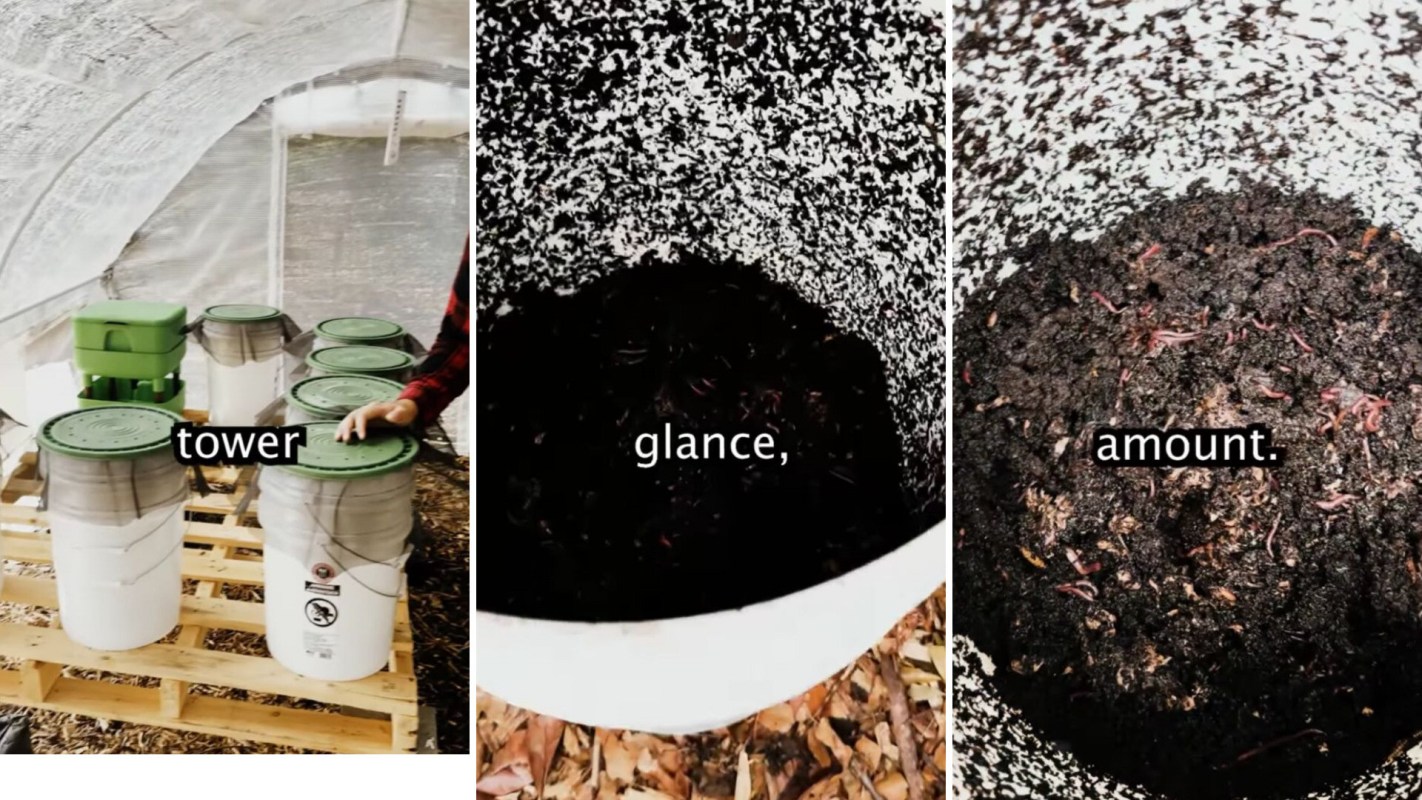Worm castings and compost have been called "gardening gold" because of the incredible way they enrich the soil and boost the growth of flowers and veggies.
And while composting can be as simple as keeping bins for food waste in the garden, one educator on Instagram has just shared an even easier, no-mess way to do it indoors.
The scoop
Acorn Land Labs (@acorn_land_labs) is dedicated to discovering and teaching efficient ways to garden. Its Instagram account posted a video in early July detailing how to build a "worm tower."
After an introduction, the Acorn Land Labs representative explains how to make the device, which turns out to be surprisingly simple.
"You'll need three five-gallon buckets; make sure they're food-grade," they say.
The video then shows the three buckets. Two of them have a few dozen worm-sized holes drilled in the bottoms, similar to a colander, while the third is left solid.
"You'll stack all three buckets together, ensuring the top two are the ones with the holes cut out in the bottom," the video's host says. "You'll seal the middle bucket's holes with newspaper. Then you'll add in the organic matter that'll be turned into compost."
"Organic matter" for composting can include table scraps, spoiled produce, small amounts of meat such as trimmings, eggshells, some yard waste, shredded unbleached paper products, and anything else that worms will eat.
After that, you just have to check on your worm tower occasionally so you can determine when to cycle in fresh food and remove compost and worms.
"Over the next three to six months, the worms will break down the organic matter into compost, and their population size will double every 90 days," the representative says. "When all the organic matter has been broken down, the worms will travel through the holes to the bucket above them because we just put in new organic matter. We then can extract compost from the middle bucket."
How it's helping
Adding homemade compost to a garden helps turn your food waste into fresh produce, lowering your grocery bill while minimizing the amount of material you send to the landfill.
Also, the worms and compost are valuable. In the video, Acorn Land Labs claims that some people have made up to $100,000 a year selling the excess from a basement full of worm towers.
What everyone's saying
Commenters loved the demonstration and asked about many details of the process so that they could make their own worm towers.
One commenter got straight to business.
"Does it smell?" they asked, adding that the only place she could do it would be inside the house.
"It shouldn't," another commenter replied. "If it does, it's because you added too much stuff."
Join our free newsletter for easy tips to save more, waste less, and help yourself while helping the planet.









